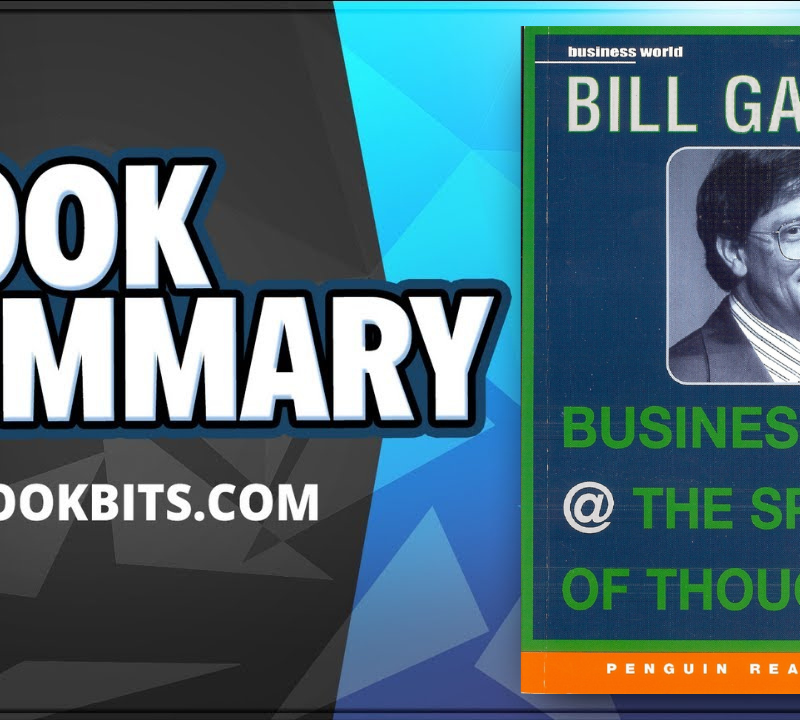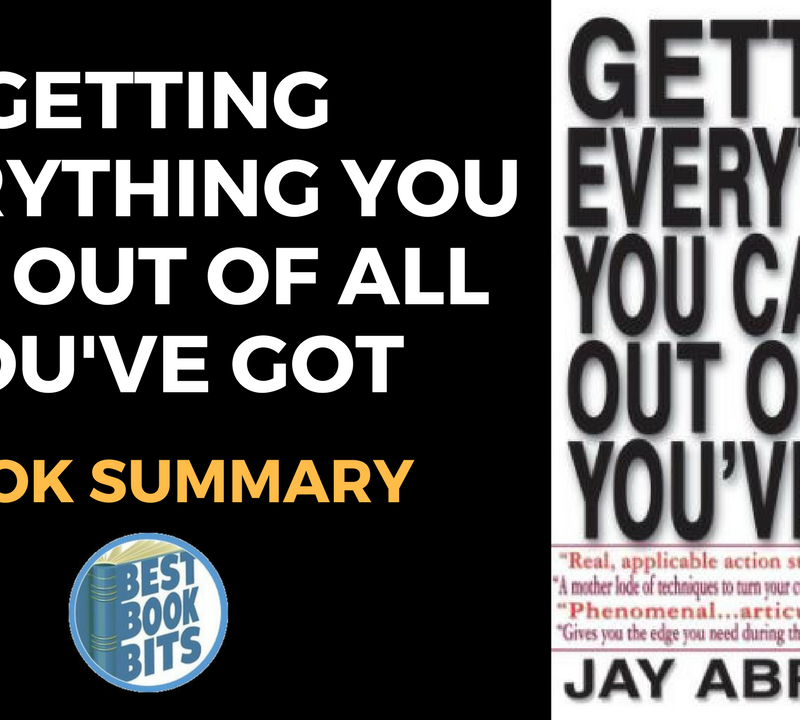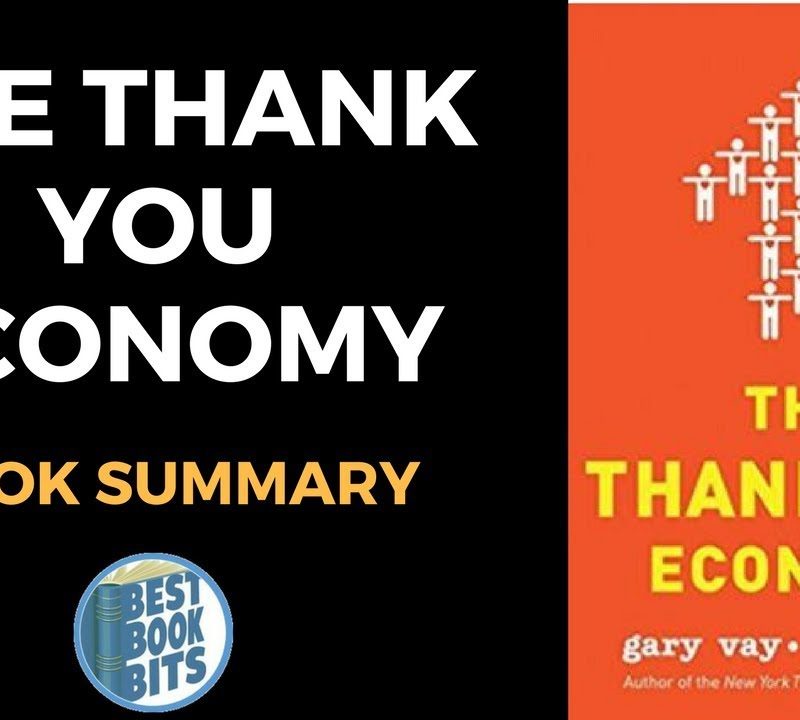★DOWNLOAD THIS FREE PDF SUMMARY HERE
? MY FREE BOOK TO LIVING YOUR DREAM LIFE”
? SPONSOR BESTBOOKBITS BY USING PATREON
? SUPPORT BESTBOOKBITS BY CLICKING THE LINKS BELOW
- 150 PDF Summaries
- Coaching Program
- Subscribe to My Channel
- Website
- Spotify
- Book Club
- Mailing List
Key notes:
- Winning lifts everyone it touches, it just makes the world a better place
- Chapter 1: mission and values
- An effective mission statement basically answers one question: how do we intend to win in this business?
- Valuesare just behaviors, specific, nitty-gritty, and so descriptive they leave little to the imagination
- Chapter 2: candor. The biggest dirty little secret in business
- Candor generates speed
- Candor contributes to winning because it gets more people involvedin the conversation and it becomes idea rich
- Candor reduces costs
- Differentiation is simply resource allocation
- Leadership:it’s not just about you
- Leadership rules:
- Leaders relentlessly upgrade their team, using every encounter as an opportunity to evaluate, coach, and build self-confidence
- Leaders make sure people not only see the vision, they live and breathe it
- Leaders get into everyone’s skin, exuding positive energy and optimism
- Leaders establish trust, with candor, transparency, and credit
- Leaders have the courage to make unpopular decisions, and gut calls
- Leaders probe and push with a curiosity that borders on skepticism, making sure their questions are answered with action
- Leaders inspire risk taking and learningby setting the example
- Leaders celebrate
- If you want people to live and breathe the vision, show them the moneywhen they do, be it with salary, bonus, or significant recognition of some sort
- Remember when you were made a leader, you weren’t given a crown. You were given a responsibility to bring out the best in others
- For that, your people need to trust you and they will as long as you demonstrate candor, give credit, andstay real and transparent
- Your gutcan be seen simply as pattern recognition
- When you are an individual contributor, your job is to be an expertand have all the answers. The best at what you do and maybe the smartest person in the room.
- When you are a leader, your job is to have all of the questions. You have to be incredibly comfortable with looking like the dumbest person in the room
- Questioning is never enough. You have to make sure your questions unleash debateand raise issues that get action
- Just because you are a leader, saying something doesn’t mean it will happen
- Hiring: What winners are made of. How to hire the right people
- The right people have integrity
- Another good hire characteristic: intelligence
- Don’t confuse education with intelligence as intelligent people come from many different backgrounds
- Third characteristic for a good hire: maturity
- 4Es and 1P framework for hiring meters:
- Positive Energy
- Ability to Energizeothers
- Edge. The courage to make the tough yes or no decision
- Execute. The ability to get the job done
- Passion. A heartfelt, deep, and authentic excitement about work. People with passion care, about colleagues, employees, friends winning
- More highly developed characteristics that really matter:
- Authenticity
- Authenticity means self confidenceand conviction, they know who they are and they embrace it. This makes them bold and decisive
- Authenticity makes a leader likable
- Ability to see around corners
- Every leader needs to have a vision and the ability to predict the future. But good leaders must have the ability to anticipate the radically unexpected.
- The strong pension to surround themselves with people betterand smarter than they are
- Heavy duty resilience
- Every leader makes mistakes. The question is does she learned from her mistakes, regroup, and then get going again with renewed speed, conviction, and competence?
- Never rely on one meeting to hire someone. Use several meetings with different people within your company
- In hiring, it pays to go for the high-potentialswho can grow with the business or are capable of moving up elsewhere in the organization
- The one question to ask in an interview is: why did the person leave their last job and the job before that?
- People management chapter:
- To manage people well, companies should:
- Elevate HR to a position of power and primacy in the organization, and make sure human resource people have the special qualities to help managers build leaders and careers
- Use a rigorous and non-bureaucratic evaluation system. Monitor it for integrity
- Create effective mechanisms, read money, recognition, and training, to motivate and maintain
- Face straight into charger relationships with unions, stars, sliders, and disruptors
- Fight gravity. And instead of taking the middle 70% for granted, treat them like the heart and soul of the organization
- Design the organizational chart to be as flat as possible, with blindingly clear reporting relationships and responsibilities
- The director of HR it is just as important and should be seen as equal to the CFO, probably the second highest position in power
- Good HR people are one part pastorswho listen to your complaints without judgment, and one part parents who loves the nurtures but gives it to you fast and straight when you are off track
- If your company is managing people well, it tightly aligns good performance with rewards
- The better you do, the more you get, and you get it in both the soul and the wallet
- A winning company just does not let good people walk out the door, for lack of recognition, financial, or otherwise
- Mistakes when firing by managers:
- Firing too quickly
- Firing to slowly
- Not enough candor
- Chapter: Change. Mountains do move.
- Attach every change initiative to a clear purpose or goal. Change for change’s sake is stupid
- Chapter: Crisis management. Going from “oh God no” to “we are fine”
- Five helpful assumptionsfor crisis management:
- Assume the problem is worse than it is
- Assume there are no secrets in the worldand that everyone will eventually find out everything
- Assume you and your organizations handling of the crisis will be portrayed in the worst possible light
- Assume there will be changes in processes and people. Almost no crisis ends without blood on the floor
- Assume your organization willsurvive and ultimately be stronger and more effective afterwards
- Three ways you can beproactive in preventing a crisis:
- Tight controls. Disciplined financial and accounting systems with tough internal and external auditing systems
- Good internal processes, with rigorous hiring processes, candid performance reviews, and comprehensive training programs. A culture of integrity
- Use a crisis for all it’s worth, teach it’s lessonsevery chance you get. In doing so, you will spread the immunity
- Section 3: Your competition
- Chapter: Strategy. It’s all in the sauce
- In real life, strategy is very straightforward. You pick a general directionand implement like hell
- Come up with a big “ah ha” your business
- Put the right people in the right jobs to drive your idea forward
- Relentlessly seek out the best practices to achieve your big idea
- What is strategybut resource allocation?
- Strategy means making clear cut choices about how to compete. You cannot be everything to everybody no matter the size of your business or how deep it’s pockets
- Slide one: lay out what the playing field looks like now
- Slide two: what has each competitor done in the last year to change the playing field?
- Slide three: what if you done in the past year to change the playing field?
- Slide five: what is your winning move? What can you do to change the playing field?
- Being able to utilize best practices from anywhere. The best companies can copy best practices, but they are good at imitating and improving
- Chapter: Budgeting
- Budgetingis very nonproductive and it sucks the energy out of the company. Financial planning is different however, and it is necessary
- Chapter: Organic growth. So you want to start something new
- Three common mistakes companies make when launching something new:
- They don’t plug start of ventures with adequate resources, especially on the people front
- They make too little fanfare about the promise and importance of the new venture. Instead of sharing it, they tend to hide it
- They limit the new venture’s autonomy
- Three guidelines for making organic growth a winning proposition:
- Spend plenty upfront and put the best, hungriest, and most passionate people in leadership roles
- Make an exaggerated commotion about the potential and importance of the new venture
- Air on the side of freedom. Get off the new ventures back
- Chapter: Mergers and Acquisitions
- Most merger of equalsare doomed to fail as merging seamlessly it almost impossible
- Cultural fitcounts just as much as strategic fit when considering a merger or acquisition
- It is uncertaintythat causes organizations to descend into fear and inertia
- The only antidote is a clear, forward moving integration processtransparent to everyone
- Chapter: Six Sigma
- Nothing compares to the effectiveness of six sigma’s when it comes to improving a company’s operational efficiency, raising its productivity, and lowering it’s costs
- It improves design processes, gets products to market fasterwith fewer defects, and builds customer loyalty. Lastly is it’s a great ability to produce great leaders
- Six sigma is meant for and has its most meaningful impact on repetitive internal processesand complexed new product designs
- Chapter: Careers. Your career
- When considering a job, you need to find the people with the same sensibilities as you
- Any new job should feel like a stretch, I’m not a layup. There needs to be an opportunity for growth
- Every job has its ups and downs, but if a job doesn’t excite you on some level just because of the stuff of it, don’t settle
- When going after your first job, live in your own skin. Authenticitymay be the best selling point you’ve got
- When someone feel stuck, their frustration builds and builds until they quit. Don’t do that
- It’s much easier to get a job from a job. Not only should you stay put, you should work harder. Nothing will get you a new job faster than terrific performance in your old one
- You have to work at something for a while before you know if you can even do it, let alone if it feels right
- Finding a jobgets easier and easier the better you are
- Chapter: Getting your next job
- All careers are shaped by some element of pure chance
- Expand your jobs horizons to include bold and unexpected activities
- Exceeding expectationsis the most reliable way to get ahead
- There are no “one” right mentors, there are many right mentors
- Have a positive attitudeand spread it around
- Chapter: Hard spots. That damn boss
- If you have a bad boss, you must avoid the trap of having a victim mentality
- Chapter: Work life balance
- Your boss is top priority is competitiveness. Your happiness matters only in so much as it helps the company win
- Most bosses are perfectly willing to accommodate a work life balance challenges if you’ve earned it with performance
- Bosses know that the work life policies in the company brochure are mainly for recruiting purposes and the real work life arrangements are negotiated one on onein the context of a support of culture
- People who continue to publicly struggle with work life balance and continually turn to the company for help get pigeonholedand labeled as ambivalent, entitled, i’m committed, or incompetent, or all of the above
- Even the most accommodating bosses believe that work-life balance problems are yours to solve
- Work life balance means making choices and trade-offs and living with the consequences
- Best practice: keep your head in whatever game you’re at
- Three warhorses: Cost, Quality,Service
- Meritocraciesare the most effective, and quotas undermine that
- The best directors in a Board of Directors share four simple traits:
- Good character
- Common sense
- Sound judgment, particularly about people
- The courage to speak up
- Governments can be bureaucratic because they do not compete. It’s way more difficult to improve the government then to improve a business
- Leadershipis all about helping other people grow and succeed
- He is a huge advocate for candor, meritocracy, and against people making themselves a victim
- Business is about people, and in fact life is only people
- To be great leader, you absolutely have to energize people
- Instead of trying to fix bad employees, let them go
- Instead, focus your time on the producers top performers and help them grow
★DOWNLOAD THIS FREE PDF SUMMARY HERE
? MY FREE BOOK TO LIVING YOUR DREAM LIFE”
? SPONSOR BESTBOOKBITS BY USING PATREON
? SUPPORT BESTBOOKBITS BY CLICKING THE LINKS BELOW
- 150 PDF Summaries
- Coaching Program
- Subscribe to My Channel
- Website
- Spotify
- Book Club
- Mailing List













